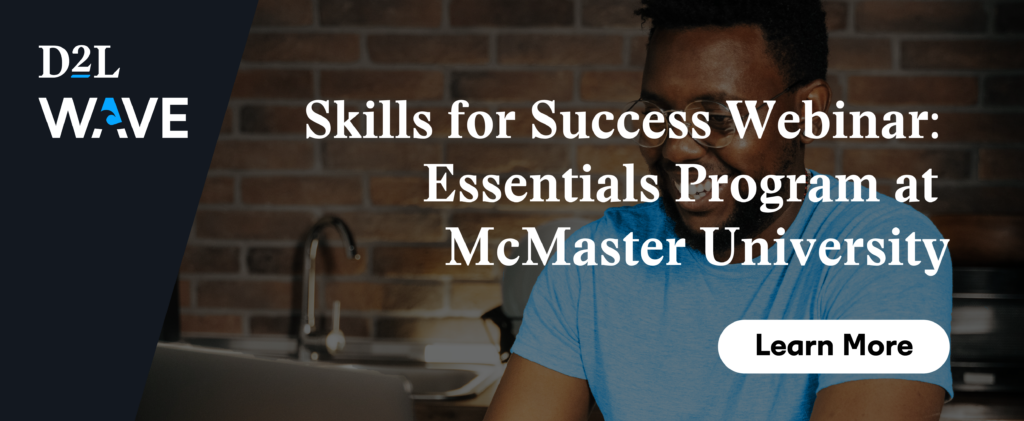Move over, pencil crayons and backpacks: Going back to school as an adult is a different ball game.
Maybe you’re going back to school full time, or maybe you’re getting ready to add some professional development courses to your resume. Maybe you’re a lifelong learner who is starting your next course, or maybe you’ve been out of the fold for a little while and are nervous to get started again.
Either way, here is the ultimate checklist for going back to school as an adult to get you started off on the right foot. You can download the fillable version using the button below, or continue reading.
Before You Pick a Course or Program
Determine your why
Do you want to do better at work? Transition to a new job? Learn for the sake of learning? Maybe it’s a combination of all three or none of the above. Whatever your motivation, writing it down can help you plot your path forward.
Shortlist some programs or courses
Start researching some programs or courses that fit your goals. Consider how much time they require, the cost and the course schedule.

Audit your time
Determine how you’re spending your time now and whether you can take on the courses or programs on your list. Maybe there are less-intensive courses that don’t need as much time, or maybe you can commit to a more demanding learning experience.
Review your support system
Do you have family members who can help with chores? Friends you can ask for help through the week? A manager who will work with you to achieve your goals?
Start the conversations
Start having conversations about your intentions. This will hold you accountable to following through and help your support system prepare to, well, support you.
Register for your courses
With all the other pieces in place, you’re ready to take the leap. Congratulations! The hard part is done.
Before Your Course or Program Starts
Gather your supplies
Maybe we were too quick to write off crayons and backpacks—who doesn’t like a few new goodies to get excited about going back to school? Pencils, pens, notepads, books, a laptop—whatever they may be, gather them ahead of time so you can start your learning on track.
Set a realistic schedule
Schedule time to get coursework done throughout the week. This will help your support systems plan ahead and will help you develop a routine.
Find a place to work
Everyone needs something different from their work environment. Some people can curl up on the couch with the TV on, or they may have a home office. Others may need to get out of the house to get work done, whether it be at a cafe, a local library or somewhere else. Find what works for you.
Order your course materials
Course materials can include physical or digital textbooks. Make sure you do this early enough that you have them by the time your course starts. The last thing you want is to start your course and already feel behind!
Log in to your learning portal
Most courses have an online component to them, whether it’s in-class, blended learning or a totally online course. Making sure you’re able to comfortably log in ahead of time will reduce day-one stress.
Once Your Course or Program Starts
Review your course outline(s)
This can help you understand how much time each of your courses is going to demand of you on a more micro level: weekly, daily and monthly.
Note important dates on a calendar or in a planner
Plan ahead so you don’t fall behind. Knowing due dates for major assignments and milestones can help you plan your life, even after you embark on your studies.
Stick to your schedule
You’ve done a great job of setting a schedule—now it’s time to stick to it. Communicate your needs to your support system so they can plan around you, too.
… but also go easy on yourself
Life happens and things come up. If you frontload your weekly schedule, you’ll give yourself the flexibility to adapt if something interrupts you. Give yourself the space to readjust.
Ask for help when you need it
If you fall behind, don’t understand something or are absent, communicate with your instructor, your peers and your support system. Communicating as early as possible is crucial to getting real support.
Keep your eye on the prize
Partway through your course, you might start to feel like you’re stuck in the weeds. There’s lots to do, there are holidays coming up and a pipe just burst in your bathroom. Take a deep breath. You’re working toward a bigger goal and you’re closer than you think.
Make time for self-care
No matter your workload, it’s important to give yourself some downtime, too. Between school, work and life, it can be easy to feel like you need to fill every minute. Don’t feel guilty for watching some bad reality TV if that’s what you need to give your brain a break.
Remember: You’re no imposter
It can be easy to feel out of your element when you go back to school. Maybe you’ve been away from the classroom for a long time. Maybe your peers seem like they know more than you. You’re all there for the same reason: to improve yourselves through education. You’re no imposter!
After Your Course or Program Finishes
Celebrate your accomplishment
It’s no small feat to complete a course or program, so celebrate however you like. A nice dinner, a movie, a vacation? Whatever your method, celebrate this accomplishment!
Share on social media
Shout it from the rooftops! Continuing your education is a lot of work no matter what stage of life you’re in. Share your win with your networks and enjoy reaping the rewards.
Update your resume or LinkedIn profile
Upskilling and professional development can contribute to getting promotions, raises or new opportunities. Once you’ve finished your course, make sure you add it to your resume or your LinkedIn profile for the world to see.
Written by

Chase Banger is a Content Marketing Specialist at D2L. An award-winning journalist and former communications specialist, he has a passion for helping people through education.
Stay in the know
Educators and training pros get our insights, tips, and best practices delivered monthly